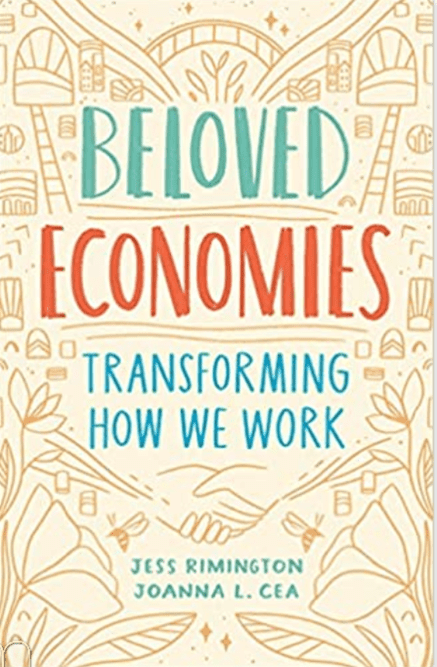Am I alone in relishing a child-like excitement on what feels like a daily basis (mea maxima culpa) as I await the arrival of the Amazon man – other booksellers are available – with my latest tranche of books? Ironically, as an oft-mocked early adopter of tech, I’ve yet to make the transition to e-books. There’s something about the physicality of reading that transforms my learning. Perhaps I’m an irredeemable professor with an insatiable appetite for the printed word.
Today’s delivery brought a fascinating recent publication which challenges conventional business-as-usual approaches, presenting readers an expansive vision of what business could be. Beloved Economies: transforming how we work draws upon extensive research with a broad array of businesses and organisations that are taking audacious approaches to success, prioritising well-being, meaning, connection and resilience, alongside the more conventional metrics of quality, impact, and financial success.

The book borrows its title from a phrase coined by Virgil Wood – educator, civil rights activist, and Church leader – who posited that “A beloved economy is induced, like your birth, and is born when ordinary people with extraordinary shared aims are tied in with things that create life and care for one another.”
Beloved Economies offers the reader seven practices as a springboard for changing how we work and for transforming the way organisations and their people flourish. They are:
- Share decision-making power
- Prioritise relationships
- Reckon with history
- Seek difference
- Source from multiple ways of knowing
- Trust there is time
- Prototype early and often
The practices emerge from the co-learning community of over sixty people drawn from a diverse array of enterprises and are rooted in their learning and their lived experience. Although all practices find expression throughout the co-learning community, each practice is illustrated with a detailed exploration of how it has manifest in a constituent enterprise. These provide thought-provoking illustrations of the potential of the emerging model.
The recency of its arrival on my doormat means that my explorations so far have been partial.
Already, however, I see potential opportunities across a broad array of businesses and leaders for whom
I consult/coach. I am intrigued by some parallels with the Generative Leadership model proposed by David Wilkinson in his book The Ambiguity Advantage: What Great Leaders are Great At. I observe, too, some potential synergies with the five practices and ten commitments proposed by Kouzes and Posner in his book The Leadership Challenge: How to Make Extraordinary Things Happen in Organizations. Much further exploration stimulated already!
Already I feel drawn to agree with Eric Riess, the author of The Lean Start-up, in his commendation of the book: “Beloved Economies offers a deeply compelling vision of a world in which the relationship between work, the environment, and human flourishing is one of harmony rather than friction and inequity.”



